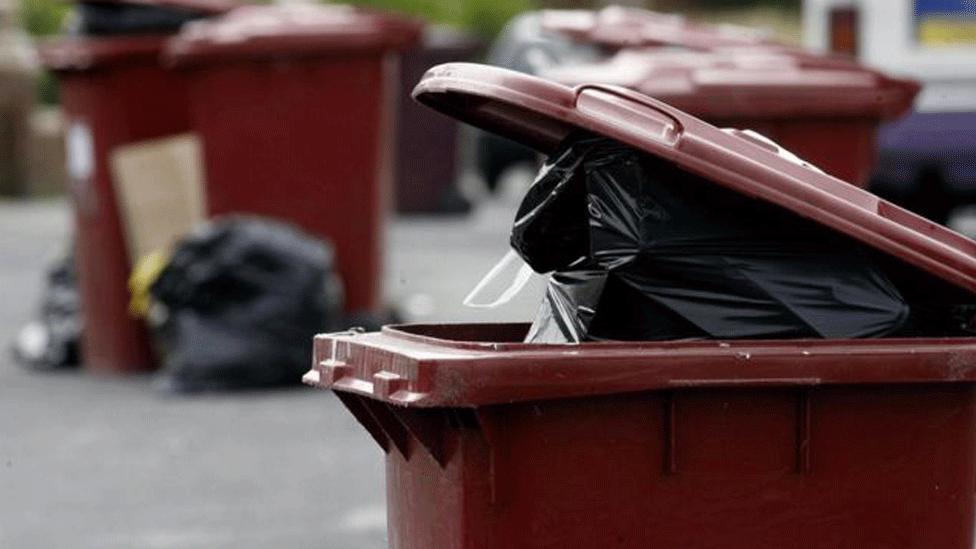Why are some areas keeping the council tax freeze?
- Published

Councils run a whole host of services including bin collection
For years councils have warned of tight budgets and many argue the Scottish government does not give them enough money. So why are some voluntarily freezing the council tax?
On the surface it seems strange.
Eight councils - the majority led by Labour - have voluntarily agreed to freeze the basic rate of council tax even though the move adds to their budget pressures. A fifth is likely to join them later on Wednesday.
Many of the councillors who supported the move had previously condemned the national council tax freeze which has now ended or criticised the Scottish government for not giving councils enough money.
By not putting up the council tax by 3%, local authorities are reducing the amount in their kitty and adding to the pressure on their budgets.
The circumstances vary from council to council.
Typically the council tax only makes up 15% of a council's income. So, 3% of 15% may seem like a drop in the ocean.
How are councils making it work?
Many councils have attempted to work out longer term budget forecasting on where they need to make efficiency savings or cuts. This may allow them to forego this year's increase without any immediate need for new cuts.
Some are even dipping into reserves.
One argument councillors may advance is that they are demonstrating efficiency or not prepared to make council tax payers foot the bill for government cuts.
The argument is that the government should either allocate resources differently or could, for instance, raise income tax on top earners.
While few would admit this publicly, May's council elections are bound to be on some minds too.
Might a further freeze be popular locally? Might some voters react badly to a rise in their bills - especially those whose homes are in Bands E to H. People in those properties are facing increased council tax because of national changes agreed by MSPs in Holyrood last year.
The councils opting to freeze
South Lanarkshire
Renfrewshire
Inverclyde
West Lothian
West Dunbartonshire
Aberdeen
Stirling
North Lanarkshire
But there is also a real political downside.
Any council which voluntarily foregoes some income can be accused, by those who say they are fighting public sector cuts, of not doing all within their power to mitigate those cuts.
Politically, it might also be hard for a council which freezes the tax to convincingly argue that it is not getting enough from the Scottish government.
However, at a national level, campaigners are more likely to want to make broader points about the need for public services to be well resourced rather than condemn individual council decisions.
So will voters be impressed by local freezes? Or would they like to see their councils raise council tax if it means, at the very least, fewer cuts and savings.
Find out in May.